Learn all about the top nutrients to help minimise the symptoms of menopause, assist with it and also maintain healthy bones.
Key nutrient are important to consider if you are going through the menopause. Whichever menopausal symptoms you experience, the change in the balance of your hormones is the cause. A well-balanced menopause diet is essential because it helps the body adjust to the hormone changes.Symptoms of the menopause can include any of the following;
- Tiredness
- Depression
- Low libido
- Vaginal dryness
- Hot flushes
- Bladder weakness
- Dehydrated skin
- Hair loss
- Insomnia
- Weight gain
Menopause diet – nutrients that you can consider:
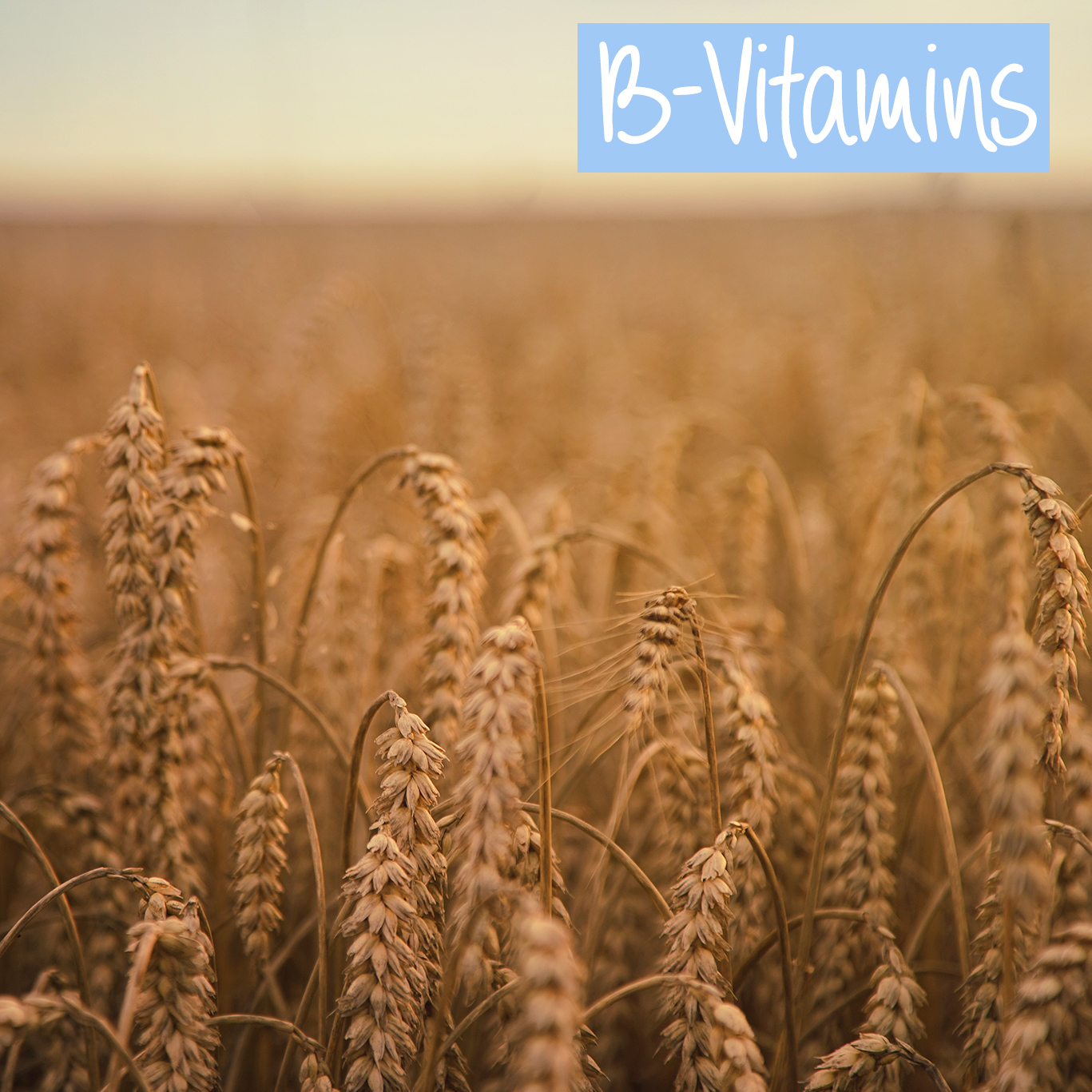
B Vitamins
B Vitamins are known as the “stress vitamins”. This is because symptoms of B-vitamin deficiency include tension, irritability, poor concentration and anxiety. Fatigue – a common symptom of menopause – makes women feel deeply exhausted even though they haven’t done much physical activity throughout the day. B Vitamins help reduce the amount of stress on the adrenal glands, which are required to produce oestrogen during the menopause. They can be useful if you are suffering from reduced energy levels. It is important to take a complex and a formulation that you can absorb with no nasty fillers.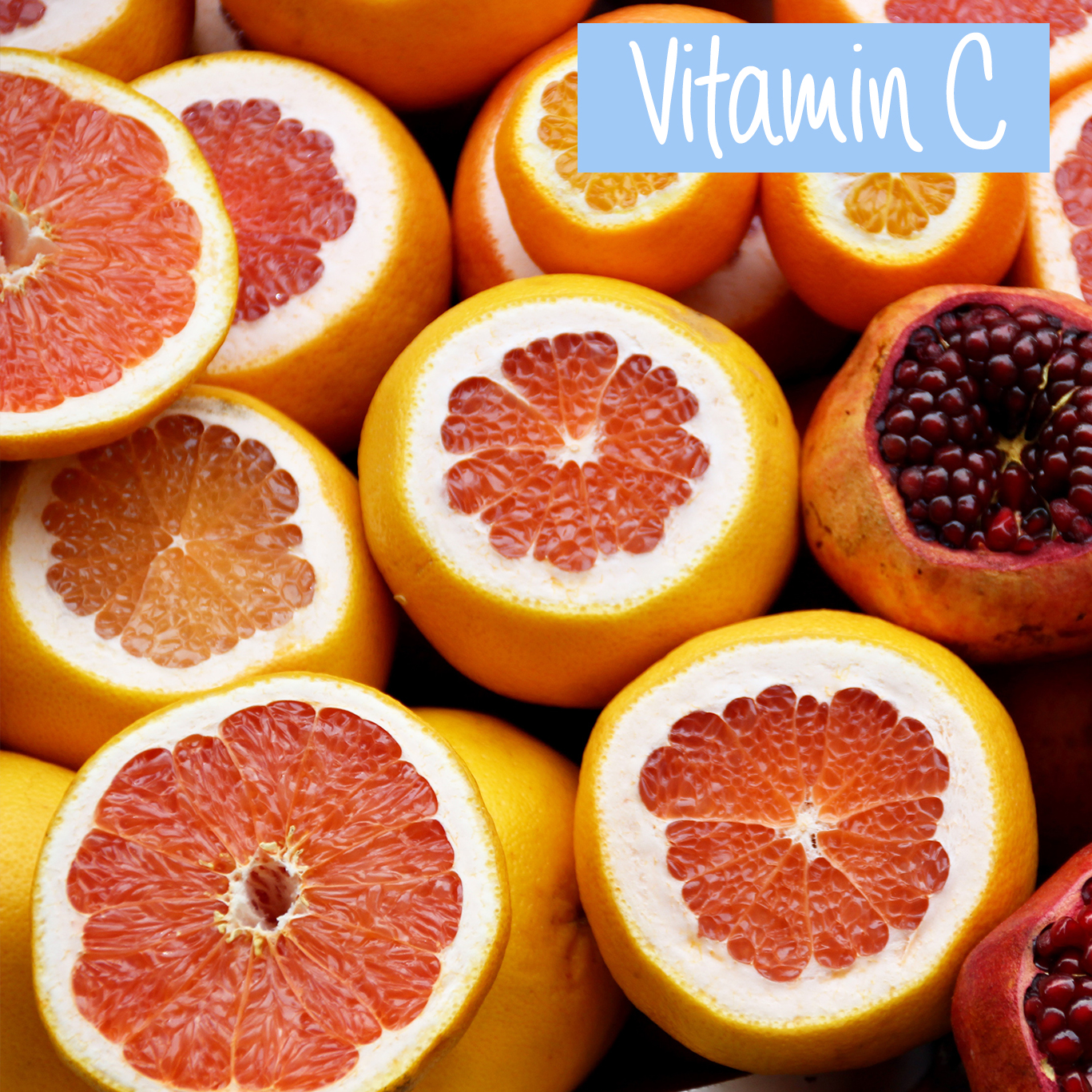
Vitamin C
Vitamin C is essential to the manufacture of collagen. Collagen provides skin its elasticity. It helps prevent and treat vaginal dryness, a painful condition which develops when the vagina loses some of its ‘stretch’. Vitamin C can be easy to miss out on if you are watching your weight and possibly on a keto or restricted diet.
Vitamin D
This vitamin plays a very important role in the prevention of breast cancer, heart disease, type 2 diabetes and osteoporosis. We don’t get it naturally from food in sufficient amounts so the sun or a supplement is required. Again, you really need to ensure you take a balanced amount along with other key nutrients and select the active form, Vitamin D3.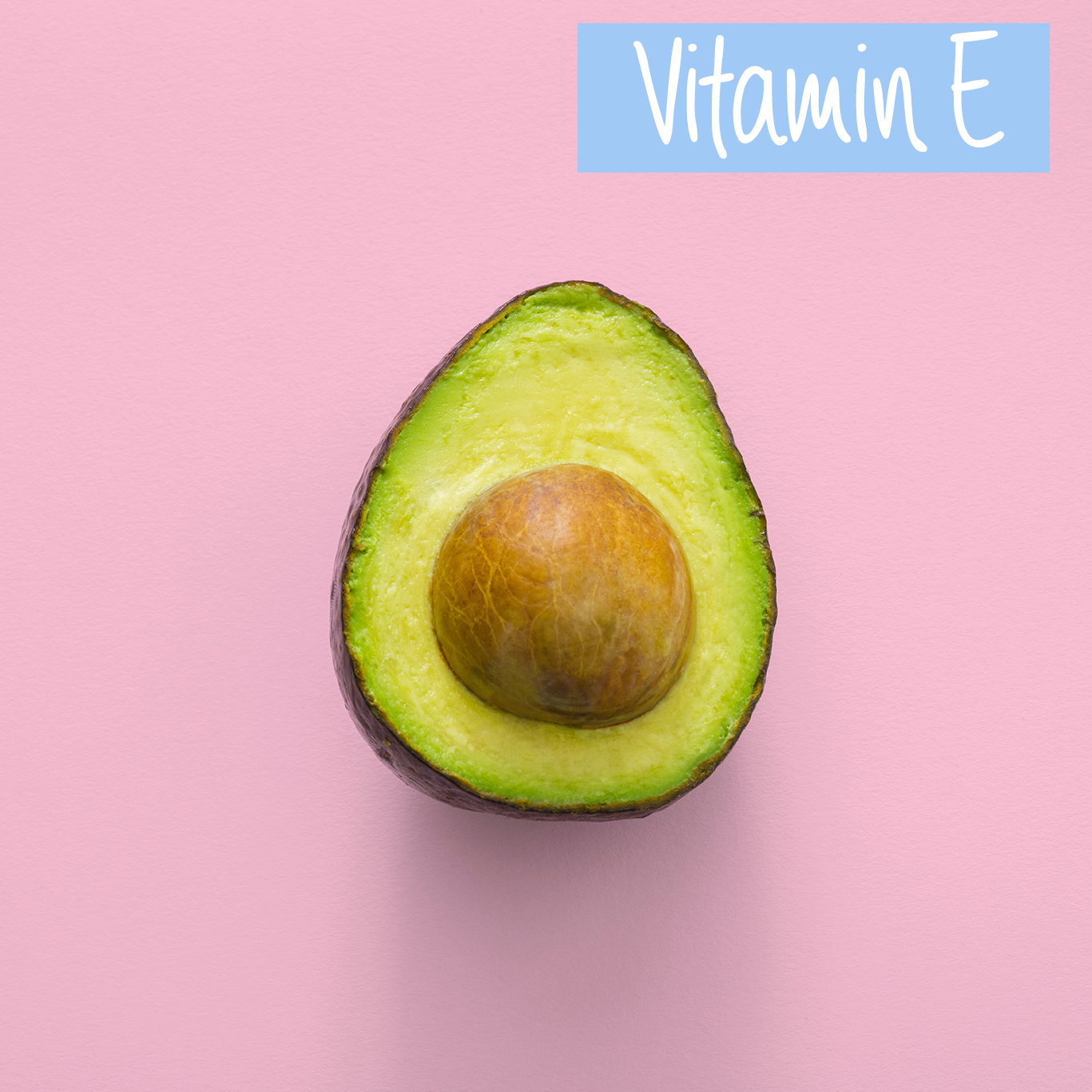
Vitamin E
Vitamin E is also helpful for vaginal dryness and has been proven to help reduce hot flushes. It can dampen the immune system which can be beneficial for some ladies as a short term assistant for hormonal balance.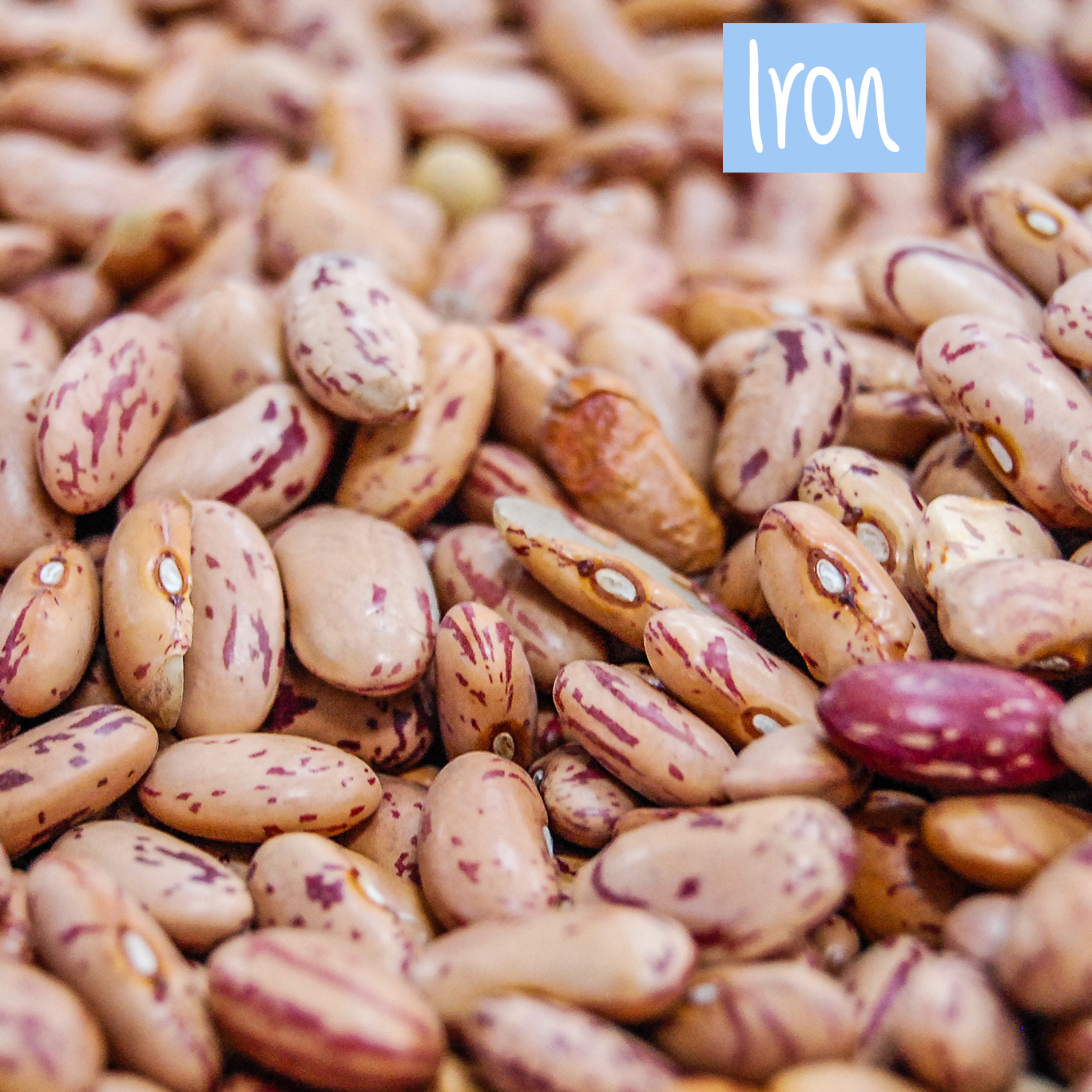
Iron
Iron is required to help your red blood cells transport oxygen to the rest of the body. Men store more iron compared to women and the loss of blood each month during menstruation means that women require more iron than men. A deficiency of iron will result in anaemia, which makes you feel sluggish and tired all the time. It is really important to have a blood test to check your iron and ferritin levels as you do not want to take a supplement and potential cause iron toxicity.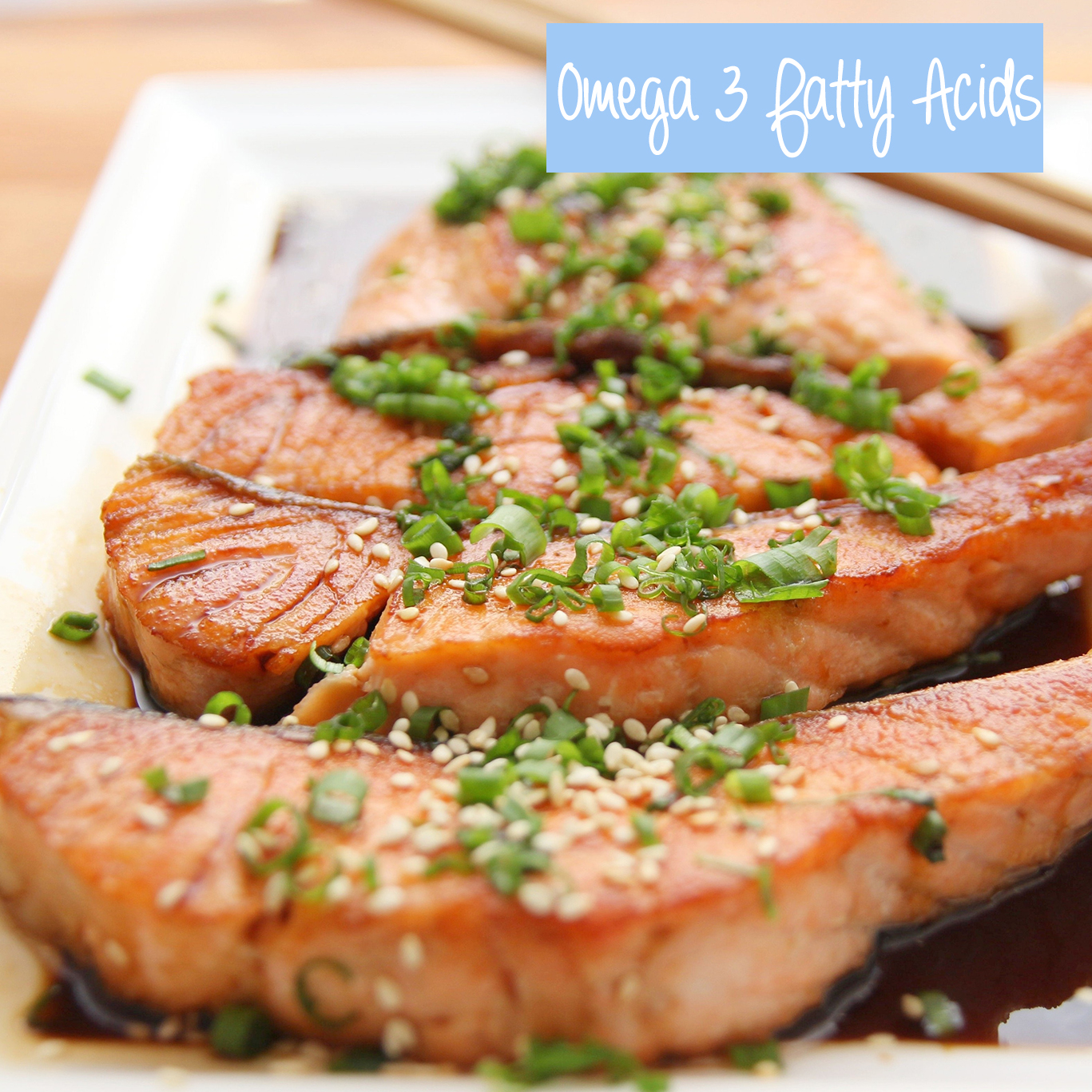
Omega 3 Fatty Acids
Symptoms of a deficiency in Omega 3 fatty acids can include dry skin, lifeless hair, cracked nails, fatigue, depression, dry eyes, aching joints, and breast pain. Omega 3 supplements have been shown to reduce the frequency of hot flushes and improve depressive symptoms in menopausal women.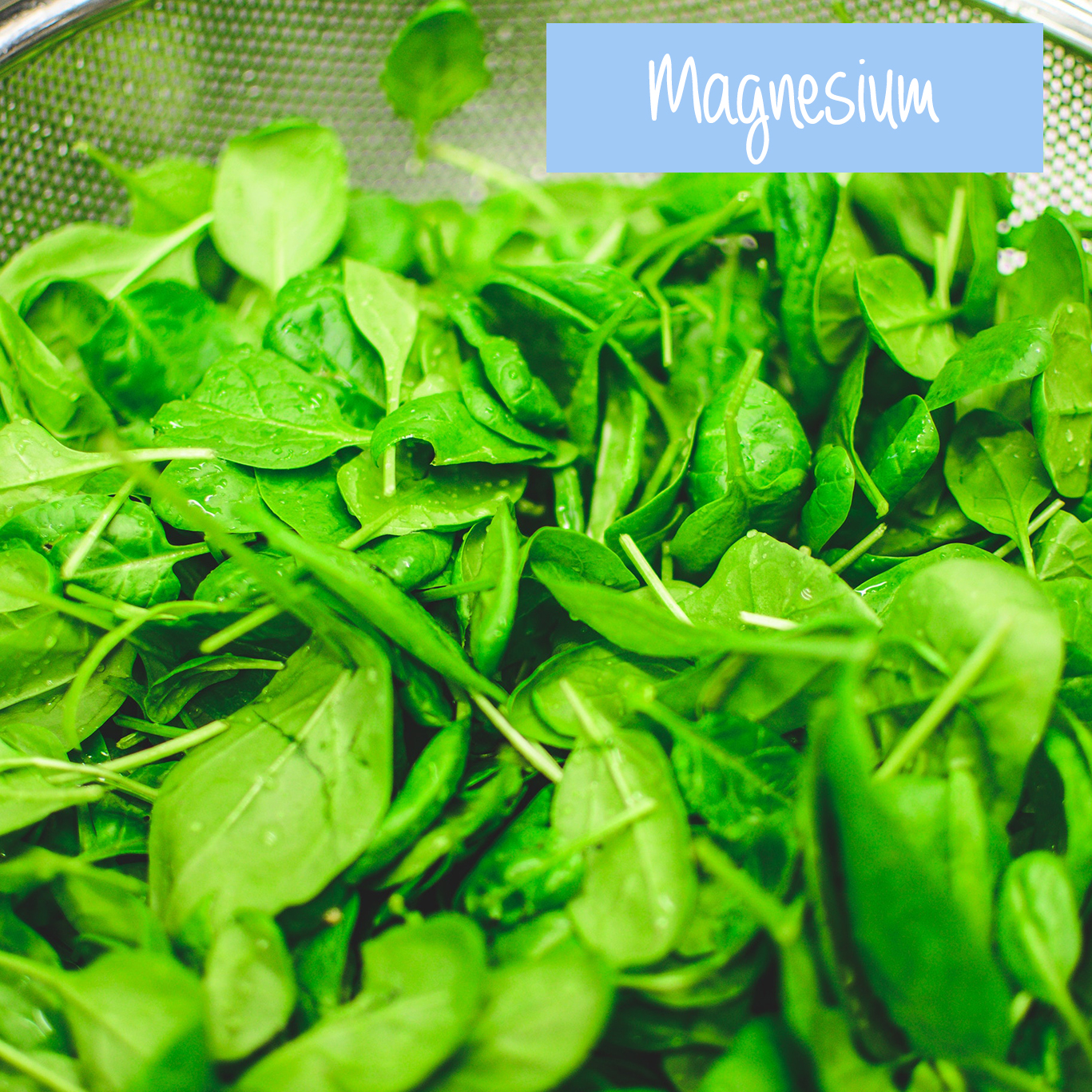
Magnesium
Magnesium plays a vital role in 300 different enzymatic functions. It is essential in maintaining optimum bone health, which is increasingly important during the menopause. Known as “nature’s tranquiliser”, magnesium supplementation assists mood and anxiety. Picking the correct formulation for your symptoms is critical for success.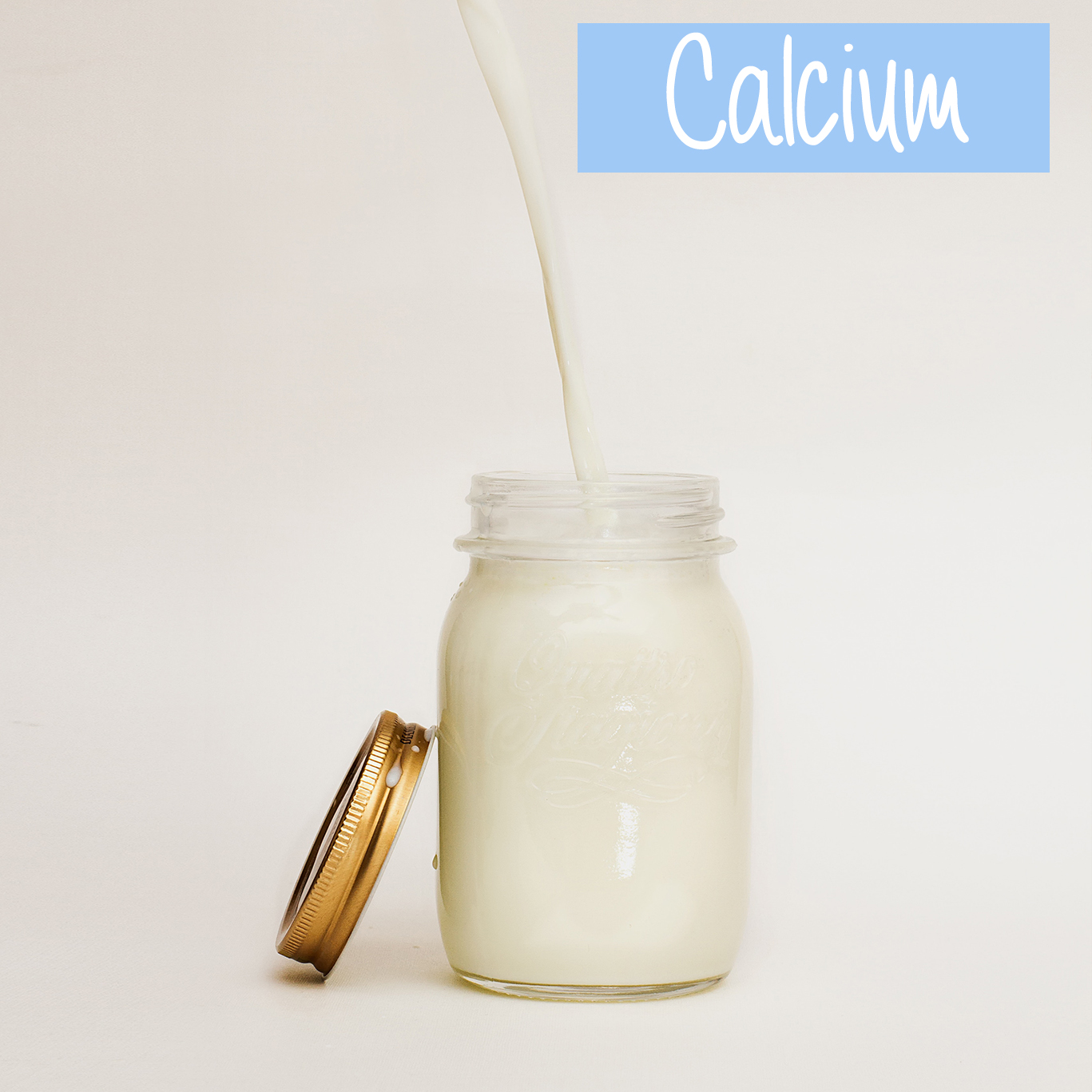
Calcium
Calcium is needed by the body to maintain bones, teeth, nails and hair. It is also required for healthy heart rhythm and blood pressure. To minimise the symptoms of menopause and maintain healthy bone mass, make sure to supply your body with these nutrients throughout the day. Dairy foods have become increasingly common to be eliminated from the diet of women for various reasons which can unfortunately leave ladies in deficit. Kale, spinach and tofu, are some examples of calcium rich non-dairy foods. These nuggets are just a few simple suggestions for a menopause diet. Dietary and lifestyle changes are integral in the stages of menopause. If you wish to explore this further Gillian Killiner is a dietary expert and lifestyle coach. She has helped thousands of women over her 22 years as a Dietitian. She would be delighted to help you… For more medical information on the menopause If you are unsure of how to change your eating habits, or need help optimising the foods you eat please do contact us. We would love to help you or your family and friends with any nutrition related queries big or small. In the meantime do please check out our 121Dietitian Shop If you have enjoyed this blog we would love you to share this with your family and friends on your social media channels. Why not visit our YouTube Channel for more on keeping your health optimal.How can a Dietitian help
- Book a consultation via our Online Portal
- About Gillian Killiner
- Check out our tailored dietary programmes
[instagram-feed] Revised 27th December 2022Posted onTrustindex verifies that the original source of the review is Google. I cannot recommend Gillian enough. I got in touch after struggling to lose weight due to PCOS and suffering from IBS. Thanks to Gillian, my IBS symptoms have massively reduced, and I have been able to lose a significant amount of weight. Her warmth makes you feel instantly comfortable and at ease. Gillian’s help and expertise is second to none, and she is always on hand to answer any questions. I am throughly enjoying the plan Gillian created for me and have found it easy to integrate into my everyday life. I am so grateful for the positive impact her plan has had on me.Posted onTrustindex verifies that the original source of the review is Google. Gillian is the greatest. She is compassionate and professional, really helped me to understand my body’s function and how to best support it. Her advice has changed my life.Posted onTrustindex verifies that the original source of the review is Google. I would highly recommend Gillian. Her advice and guidance has been a game changer for me. With so much conflicting and confusing advice on healthy eating, using a professional nutritionalist is a must.Posted onTrustindex verifies that the original source of the review is Google. I could not recommend Gillian enough over the last 3 months - she has turned my life around! I was referred to Gillian by my gastro consultant due to suffering from ibs, gastritis and hormonal issues for nearly 10 years. Gillian was very understanding and approachable throughout my time spent with her. Gillian discussed my health, lifestyle and eating habits thoroughly. She advised an individualised blood check for underlying issues, educated me on supplements and provided numerous information to help aid my recovery. The low foodmap programme I have been following is achievable and can be adapted to anyones lifestyle. As I am a vegetarian I thought this process may be difficult however Gillian reassured me that this would be no issue. She supplied personalised shopping lists, recipes and alternative foods to help heal my gut and overall health. Continual support from Gillian was on hand via email when required. I seen improvements in my symptoms within only weeks of starting the programme and was overwhelmed by the success due to suffering for years! I have been spreading the word about Gillian's brilliant work and will continue to do so! Thank you again for all your help!Posted onTrustindex verifies that the original source of the review is Google. Strongly recommended. There are not many professionals that can totally change you life for the better but this one one if you follow the advice given.Posted onTrustindex verifies that the original source of the review is Google. For 30 years I have suffered with IBS D and have been unable to find the right specific help. I was introduced to 121 Dietician about 6 weeks ago and like all other services out there I was sceptical. First up was a consultation online which was great considering the many issues I was having going to places. Gillian listened very attentively and understood the many problems I was having. Gillian decided to introduce me to the Low FODMAP diet. Starting out she provided everything (information, shopping lists, recipes etc) to get started. Through the course of the first 6 weeks Gillian was available to answer any questions or concerns. Following the first 6 weeks I'm very happy to say that all the many problems associated with IBS have gone and I'm starting to live a normal life without any stage fright when out and about. The next 8 weeks will be the reintroduction stage but based on the knowledge from Gillian in the initial stage I'm very confident that at the end I will have full understanding of all my triggers. I can't recommend this service enough as most importantly after 30 years of severe symptoms I once again feel healthy and happy. This is a must if you suffer continually from this horrendous condition. I would be confident that this will help anyone who has IBS. For me this was the best money ever spent and I can't thank Gillian enough for the difference she has made. Roy DornanPosted onTrustindex verifies that the original source of the review is Google. Helped solve stomach issues, had previous been to several people but this was the first dietary intervention that workedPosted onTrustindex verifies that the original source of the review is Google. After over 10 years of eating quite poorly, Gillian has completely changed my approach to food. After a consultation and review of my diet, she provided me with a list of easy and quick recipes that are packed full of nutrition. She takes into consideration your lifestyle as well which I really appreciated too. I now have much more energy and actually enjoy preparing meals now, something I never did before. I honestly cannot recommend her enough. Thankyou! :-)Posted onTrustindex verifies that the original source of the review is Google. The overall experience was a very positive one. Gillian certainly had the expertise and people skills to help evaluate and treat my daughters gut issues. The progress was quite instantaneous and over time has made a huge difference to her everyday life. Thanks to Gillian for her work which came at the end of many doctor consultations. In hindsight Gillian should have been the first port of call.Posted onTrustindex verifies that the original source of the review is Google. Gillian is great and her program was just perfect. All the meals were delicious and I always felt satisfied which made it very easy to follow. I would highly recommend, especially the 121 sports program.
Links included in this description might be Amazon affiliate links. If you purchase a product or service with the links that I provide I may receive a small commission.
